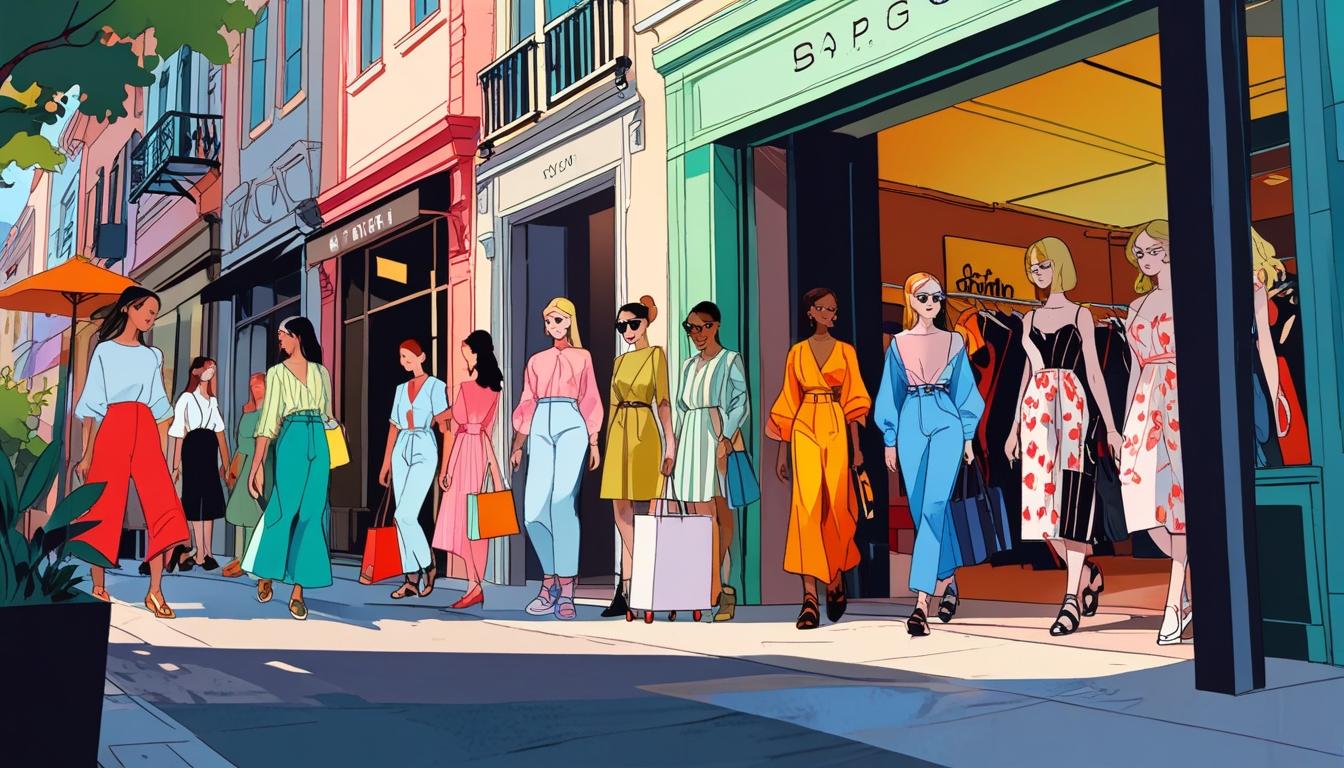The luxury fashion sector is experiencing its most significant challenges since the Great Recession, prompting a renewed interest in emerging brands that prioritize authenticity and quality.
The luxury fashion industry is currently facing significant challenges, with many experts deeming the current downturn as the most severe since the Great Recession in the early 2000s. This shift comes after a previous boom in designer product sales, catalyzed by a surge in consumer spending as individuals sought to make up for lost shopping opportunities during the Covid-19 pandemic. However, as reported by Harper’s Bazaar Singapore, the enthusiasm has since diminished, leading to a landscape marked by declining revenues and sluggish sales across major fashion houses.
The causes of this downturn are multifaceted. Many consumers are now perceiving rising prices without a corresponding increase in quality, which sparks concerns and may lead them to limit their spending further. Anton Reyniers, head of strategy at We Are Social’s Singapore branch, highlighted this trend, noting that luxury fashion’s proliferation on social media has resulted in a diluted sense of exclusivity. “Luxury fashion has become more ubiquitous over the last decade—largely thanks to the overexposure it has been given on social media from influencers showing off their ‘aspirational’ lives,” he said, adding that consumer feedback reflects a growing awareness of the economic climate and a shift in what is considered truly aspirational.
Despite the prevailing gloom, there appears to be an opportunity for younger challenger brands to thrive in this evolving market. According to a survey conducted by the luxury lifestyle distributor Bluebell Group, more than 60 percent of consumers polled across various Asian nations expressed a willingness to support lesser-known brands that offer comparable style and quality to established luxury labels. Specifically, Hong Kong has shown notable growth in purchases from these smaller brands across categories such as fashion and accessories.
One such challenger brand, Jacquemus, founded by Simon Porte Jacquemus, is strategically expanding from its original base in Paris to new markets, including the United States and the United Kingdom. Renowned for its distinctive designs, including oversized sun hats and attention-grabbing marketing campaigns, Jacquemus remains majority-owned by its founder, who emphasizes the importance of independence in business. “I value my independence,” Jacquemus stated in a recent interview with Le Figaro.
Another brand seeing success is Chopova Lowena, founded by Emma Chopova and Laura Lowena, known for their carabiner-hooked kilts. The brand has resonated with a wide audience, particularly in mainland China, and has gained traction thanks to its strong presence on social media platforms like Xiaohongshu.
Similarly, Hiromi Yu, the founder of the multi-label luxury boutique Marais, pointed out that there is a favorable enthusiasm for younger brands, citing their competitive pricing and refusal to compromise on quality. Brands such as Sacai and Amiri are performing well due to their ability to respond to market demands while keeping their offerings fresh.
Wei Lin, founder of the knitwear label PH5, also emphasized the advantage of authenticity and uniqueness in their offerings. “We are not in a rush to double or triple our revenue every year,” Lin expressed, reflecting a commitment to quality and creative integrity over aggressive growth strategies.
As the luxury sector navigates this turbulent period, the potential for success among emerging brands may hinge on their ability to foster community and connection with consumers. Anton Reyniers pointed out that in a market characterized by segmentation, transforming customers into passionate brand advocates is a powerful strategy.
In conclusion, while the established luxury brands face rising consumer scrutiny and market challenges, smaller, nimble brands are forging paths forward by offering appealing alternatives that resonate with modern consumers. This shift highlights a broader recalibration in the luxury fashion landscape, where authenticity, quality, and connection stand out as key differentiators in the ongoing narrative of luxury retail.
Source: Noah Wire Services



